$12 Million to Penn Libraries to Enrich Judaic Scholarship and Digital Humanities
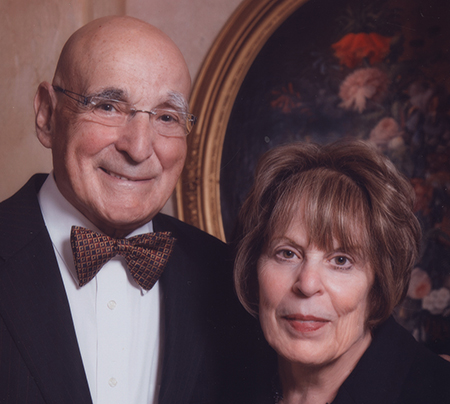 The University of Pennsylvania Libraries has received a series of gifts from Arnold and Deanne Kaplan, including the world’s first endowed position in Judaica digital humanities, totaling $12 million (Almanac December 11, 2012). The Kaplans’ contributions also comprise an in-kind gift of collections of Americana and Early American Judaica, research fellowships and an endowment for continuing acquisitions.
The University of Pennsylvania Libraries has received a series of gifts from Arnold and Deanne Kaplan, including the world’s first endowed position in Judaica digital humanities, totaling $12 million (Almanac December 11, 2012). The Kaplans’ contributions also comprise an in-kind gift of collections of Americana and Early American Judaica, research fellowships and an endowment for continuing acquisitions.
The most recent gifts coincide with the release of a new website, The Arnold and Deanne Kaplan Collection of Early American Judaica, offering free access to nearly 7,000 digital copies of items from the collection for viewing and downloading (see Kaplan Collection of Early American Judaica article). Digital copies of recent acquisitions will be made available in the coming year, and all future items will be made available as well.
“The Kaplans’ forward-thinking gifts continue an extraordinary tradition of philanthropy. Their generosity will ensure long-lasting access to a world-class collection,” said Constantia Constantinou, H. Carton Rogers III Vice Provost and Director of the Penn Libraries. “We are proud to be home to a collection that speaks to the history and values of freedom and opportunity and the great tradition of pluralism in Philadelphia and at the University of Pennsylvania.”
The foundation for a partnership between the Kaplans and the Penn Libraries was established more than 10 years ago between Mr. Kaplan and Arthur Kiron, Schottenstein-Jesselson Curator of Judaica Collections. Their initial collaboration, the Jesselson-Kaplan American Genizah Project, centered around the letters of the mid-19th-century rabbi Isaac Leeser. The resulting website served as an early model for using digital technologies to integrate dispersed but related documents and make them accessible to scholars around the world.
This article is related to the The Arnold and Deanne Kaplan Collection of Early American Judaica article.
$6 Million to PSOM for PennHealthX from Alumnus Rod Wong
 Penn’s Perelman School of Medicine recently celebrated the November 21 signing of a $6 million gift agreement from Rod Wong (M’03) to endow the Roderick T. Wong PennHealthX Program.
Penn’s Perelman School of Medicine recently celebrated the November 21 signing of a $6 million gift agreement from Rod Wong (M’03) to endow the Roderick T. Wong PennHealthX Program.
Established in 2013, Penn HealthX is one of the preeminent student-led organizations within the University of Pennylania’s Perelman School of Medicine and supports medical students interested in health care management, entrepreneurship, technology and business. Over the past six years, it has grown into a nationally recognized program that provides medical students with real-world opportunities to explore, experience and contribute to innovation.
The program is integrated into the medical school curriculum and awards a Certificate in Healthcare Management, Entrepreneurship and Technology to graduating medical students who demonstrate a sustained interest in health-care innovation and meet the program requirements.
This new endowed fund will support the program and create a scholarship to provide financial support to medical students who are pursuing an MBA at Wharton. In recognition of his gift and his long-term involvement with PSOM, the program will now be named the Roderick T. Wong Penn HealthX Program.
In addition to operating a venture fund that offers grants to teams of students who are developing innovative ideas in health care, the program supports internships and provides students with an opportunity to participate in interdisciplinary lectures, workshops and competitions across campus.
“PennHealthX embodies all the ideals that I deeply care about, and I viewed this as an incredible opportunity to be able to support that at my alma mater,” said Dr. Wong. “I’m proud of all the students who proved that what started out as an experiment is now a crucial complement to the education they get here.”
Dr. Wong received his BS in economics from Duke University, his MBA from Harvard Business School and his MD from PSOM. He is the managing partner of RTW Investments LLC, a health-care investment firm in New York.
Environmental Innovations Initiative
We are very pleased to announce the launch of the Environmental Innovations Initiative. Global sustainability, in the face of the current climate crisis, is an essential challenge for our world and our future. At Penn, we take very seriously our responsibility to help shape that future. Over the past 18 months, we have engaged extensive consultations across the University to consider how best to advance this mission from a perspective of research and education. This effort forms a critical part of the new Climate and Sustainability Action Plan 3.0, which reaffirms the University’s commitment to address environmental challenges, in particular the plan’s first goal to “expand the scope of sustainability research.” These conversations have confirmed, as the Climate Action Plan notes, that Penn faculty, students and staff are highly engaged in these vital issues and that there is already a significant amount of activity on our campus.
The Environmental Innovations Initiative will be designed to bring together researchers, scholars and students to develop new ideas and innovative solutions for our global environment. It will maximize Penn’s distinctive interdisciplinary strengths, building collaborations across disciplines and creating a catalyst to spur new areas of inquiry. In so doing, it will complement our ongoing initiatives, including most recently the Vagelos Institute for Energy Science and Technology, founded in 2016; the Kleinman Center for Energy Policy, founded in 2014; and the Penn Program in Environmental Humanities, also founded in 2014. In particular, the new Initiative will be charged to:
- Facilitate innovative research that maximizes Penn’s distinctive interdisciplinary strengths, within and between schools, centers, graduate groups and departments;
- Recruit outstanding faculty members whose new perspectives advance the University’s work across such areas as climate change, sustainability and environmental justice;
- Develop formal and informal educational programs, as well as public events and communications, that further the impact of Penn research and bring new solutions to our campus and a wider global community.
The initiative will be led by two of our most distinguished faculty members in this area: Joseph S. Francisco, President’s Distinguished Professor of Earth and Environmental Sciences, and Kathleen D. Morrison, Sally and Alvin V. Shoemaker Professor and Chair of Anthropology. They will work closely with existing partners across the University and lead an international search next semester for the initiative’s inaugural executive director. In the coming week, they will communicate with all Penn faculty members with more information about the Initiative and how to get involved with it. This work will ultimately include seed money and logistical support for faculty research, conferences and other major public events and interdisciplinary working groups with a significant role for students.
We are proud of the vibrant engagement on our campus with sustainability and climate change, and we are confident that the new Environmental Innovations Initiative will further this engagement and help all of us make a tangible difference in our world.
—Amy Gutmann, President
—Wendell Pritchett, Provost
Wharton’s New Sports Analytics and Business Initiative
The Wharton School of the University of Pennsylvania announced the establishment of the Wharton Sports Analytics and Business Initiative (WSABI). WSABI represents an expansion of school-wide sports business activities by building on the Wharton Sports Business Initiative (WSBI), founded in 2008 (Almanac March 4, 2008). The addition of sports analytics offerings dramatically expands the scope of engagement for industry, alumni and students.
“With sports being a multibillion-dollar international industry that engages individuals around the globe, Wharton is uniquely capable of applying our prowess in data analytics to yield new understanding of a topic that has fascinated societies for thousands of years,” said Wharton Dean Geoff Garrett. “The Wharton Sports Analytics and Business Initiative will give the leading minds involved in sports—from students to owners to ‘Moneyball’ type data scientists—a ringside seat to better examine the future of sports.”
WSABI is supported by the generosity of Julie & Ken Moelis who are committed to supporting the expanding student interest in the business of sports. WSABI will be part of Analytics at Wharton, broadening the School’s focus in teaching, research and industry engagement initiatives that use big data to improve decision-making and generate actionable business insights.
Sports business is continually evolving with the emergence of sports analytics, legalized sports betting and e-sports. With WSABI, Wharton students will now have a wide range of opportunities to apply what they learn in classes and connect it to industry. WSABI will serve as the meeting point for academic research, alumni engagement and industry relationships, all within one student-focused initiative.
“Our students are incredibly enthusiastic about sports and the opportunity to transform the entire industry through analytics-driven decision-making,” said Vice Dean of Analytics at Wharton Eric Bradlow. “The Wharton Sports Analytics and Business Initiative will prepare our students to take leadership roles, translating analytics into actionable sports business insights.”
Under the leadership of Cade Massey, Wharton practice professor and Adi Wyner, Wharton professor of statistics, WSABI will offer a range of programming including:
- Penn Sports Research Group (PSRG), a select group of undergraduate students learning statistics through the lens of sports
- The Annual Wharton Sports Business Summit
- WSABI University Network, which already includes the Penn baseball team and will grow across Penn schools and departments to create new applications to methods of statistics taught by faculty
- Industry partnerships, including accessing datasets, from professional sports teams that allow students to work directly at the frontier of sports analytics. These partnerships will also generate internship and job opportunities for students.
- Multiple summer high school programs, including Wharton Sports Business Academy and Wharton Moneyball Academy and Training Camp
Call for Proposals for the Penn India Research & Engagement Fund and the Global Engagement Fund
Penn Global is excited to announce the 2019 Call for Proposals for the Penn India Research & Engagement Fund and the Global Engagement Fund.
The Penn India Research & Engagement Fund (Penn IREF), launched in October 2017, is a competitive matching program designed to stimulate and support activity in and on India with a goal of positioning Penn as a key contributor toward the generation of transformative and impactful ideas on major debates in India. Proposals for Penn IREF are due by January 17, 2020. For additional details about and submission instructions for Penn IREF, please visit our website at: https://global.upenn.edu/global-initiatives/penn-india-research-and-engagement-fund
The Global Engagement Fund (GEF) aims to seed creative, faculty-driven projects that will catalyze entrepreneurial research or initiatives in a global context and position Penn as a leader of global research and intellectual innovation. Specifically, Penn Global seeks to promote faculty research and engagement around the world by providing seed funding for new projects that will lead to additional opportunities and continue beyond the scope of the Global Engagement Fund. Proposals for GEF are due February 14, 2020. For additional details about and submission instructions for GEF, please visit our website at: https://global.upenn.edu/global-initiatives/penn-global-engagement-fund
We strongly encourage faculty and administrators who are interested in applying for either fund to contact global@upenn.edu with any questions and/or requests to schedule a brief meeting to further discuss your ideas. We look forward to learning of your ideas and working with you in the coming months.
—Penn Global
Summary Annual Report for The University of Pennsylvania Basic Plan
This is a summary of the annual report of The University of Pennsylvania Basic Plan (Plan No. 028) sponsored by the University of Pennsylvania, EIN: 23-1352685, for the period January 1, 2018 through December 31, 2018. This annual report has been filed with the Employee Benefits Security Administration, as required under the Employee Retirement Income Security Act of 1974 (ERISA).
Basic Financial Statement
Benefits under the plan are provided through unallocated insurance contracts and a trust fund. Plan expenses were $27,207,272. These expenses included $3,501 in administrative expenses and $27,203,771 in benefits paid to participants and beneficiaries. A total of 25,235 persons were participants in or beneficiaries of the plan at the end of the plan year.
The value of plan assets, after subtracting liabilities of the plan, was $973,835,010 as of December 31, 2018, compared to $989,608,696 as of January 1, 2018. During the plan year the plan experienced a decrease in its net assets of $15,773,686. This decrease includes net unrealized depreciation in the value of plan assets; that is, the difference between the value of the plan’s assets at the end of the plan year and the value of assets at the beginning of the plan year or the cost of assets acquired during the plan year. The plan had total income of $11,433,586, including employer contributions of $58,454.415, employee rollover contributions of $4,209,616, losses from investments of $51,248,444 and other income of $17,999.
Your Rights to Additional Information
Under ERISA, you have the right to receive a copy of the full annual report, or any part thereof, upon request. The items listed below are included in that report for the University of Pennsylvania Basic Plan:
- An accountant’s opinion;
- Financial information;
- Information on payments to service providers;
- Assets held for investment;
- Insurance information; and
- Information regarding pooled separate accounts in which the plan participates.
To obtain a copy of the full annual report, or any part thereof, write or call the office of the Plan Administrator, c/o Joanne M. Blythe, Retirement Manager, University of Pennsylvania, 3451 Walnut Street, 600 Franklin Building, Philadelphia, P. 19104-6205, (215) 898-9947. The charge to cover copying costs will be $5 for the full annual report or 25 cents per page for any part thereof.
You also have the right to receive from the Plan Administrator, on request and at no charge, a statement of the assets and liabilities of the plan and accompanying notes, or a statement of income and expenses of the plan and accompanying notes, or both for the University of Pennsylvania Basic Plan. If you request a copy of the full annual report from the Plan Administrator, these two statements and accompanying notes will be included as part of that report. The charge to cover copying costs given above does not include a charge for the copying of these portions of the report because these portions are furnished without charge.
You also have the legally protected right under ERISA to examine the annual reports in the offices of the Employer at the address for the Plan Administrator, above, and at the US Department of Labor in Washington, DC, or to obtain a copy from the US Department of Labor upon payment of copying costs. Requests to the Department should be addressed to: Public Disclosure Room, Room N-1513, Employee Benefits Security Administration, US Department of Labor, 200 Constitution Avenue, NW, Washington, DC 20210.
Summary Annual Report for The University of Pennsylvania Matching Plan
This is a summary of the annual report of The University of Pennsylvania Matching Plan (Plan No. 001) sponsored by the University of Pennsylvania, EIN: 23-1352685, for the period January 1, 2018 through December 31, 2018. This annual report has been filed with the Employee Benefits Security Administration, as required under the Employee Retirement Income Security Act of 1974 (ERISA).
Basic Financial Statement
Benefits under the plan are provided through unallocated insurance contracts and a trust fund. Plan expenses were $210,344,582. These expenses included $29,205 in administrative expenses and $210,315,377 in benefits paid to participants and beneficiaries. A total of 27,516 persons were participants in or beneficiaries of the plan at the end of the plan year.
The value of plan assets, after subtracting liabilities of the plan, was $4,423,936,223 as of December 31, 2018, compared to $4,674,037,029 as of January 1, 2018. During the plan year the plan experienced a decrease in its net assets of $250,100,806. This decrease includes net unrealized depreciation in the value of plan assets; that is, the difference between the value of the plan’s assets at the end of the plan year and the value of assets at the beginning of the plan year or the cost of assets acquired during the plan year. The plan had total losses of $39,756,224, including employer contributions of $71,224,630, employee contributions of $74,396,410, employee rollover contributions of $3,333,179, losses from investments of $188,885,692 and other income of $175,249.
Your Rights to Additional Information
Under ERISA, you have the right to receive a copy of the full annual report, or any part thereof, upon request. The items listed below are included in that report for the University of Pennsylvania Matching Plan:
- An accountant’s opinion;
- Financial information;
- Information on payments to service providers;
- Assets held for investment;
- Insurance information; and
- Information regarding pooled separate accounts in which the plan participates.
To obtain a copy of the full annual report, or any part thereof, write or call the office of the Plan Administrator, c/o Joanne M. Blythe, Retirement Manager, University of Pennsylvania, 3451 Walnut Street, 600 Franklin Building, Philadelphia, P. 19104-6205, (215) 898-9947. The charge to cover copying costs will be $5 for the full annual report or 25 cents per page for any part thereof.
You also have the right to receive from the Plan Administrator, on request and at no charge, a statement of the assets and liabilities of the plan and accompanying notes, or a statement of income and expenses of the plan and accompanying notes, or both for the University of Pennsylvania Matching Plan. If you request a copy of the full annual report from the Plan Administrator, these two statements and accompanying notes will be included as part of that report. The charge to cover copying costs given above does not include a charge for the copying of these portions of the report because these portions are furnished without charge.
You also have the legally protected right under ERISA to examine the annual reports in the offices of the Employer at the address for the Plan Administrator, above, and at the US Department of Labor in Washington, DC, or to obtain a copy from the US Department of Labor upon payment of copying costs. Requests to the Department should be addressed to: Public Disclosure Room, Room N-1513, Employee Benefits Security Administration, US Department of Labor, 200 Constitution Avenue, NW, Washington, DC 20210.
Summary Annual Report for The Supplemental Retirement Annuity Plan of The University of Pennsylvania
This is a summary of the annual report of The Supplemental Retirement Annuity Plan of the University of Pennsylvania (Plan No. 002) sponsored by the University of Pennsylvania, EIN: 23-1352685, for the period January 1, 2018 through December 31, 2018. This annual report has been filed with the Employee Benefits Security Administration, as required under the Employee Retirement Income Security Act of 1974 (ERISA).
Basic Financial Statement
Benefits under the plan are provided through unallocated insurance contracts and a trust fund. Plan expenses were $50,844,126. These expenses included $2,426 in administrative expenses and $50,841,700 in benefits paid to participants and beneficiaries. A total of 28,741 persons were participants in or beneficiaries of the plan at the end of the plan year.
The value of plan assets, after subtracting liabilities of the plan, was $1,220,041,524 as of December 31, 2018, compared to $1,248,527,917 as of January 1, 2018. During the plan year the plan experienced a decrease in its net assets of $28,486,393. This decrease includes net unrealized depreciation in the value of plan assets; that is, the difference between the value of the plan’s assets at the end of the plan year and the value of assets at the beginning of the plan year or the cost of assets acquired during the plan year. The plan had total income of $22,357,733 including employee contributions of $55,747,884, employee rollover contributions of $22,935,943, losses from investments of $56,426,983 and other income of $100,889.
Your Rights to Additional Information
Under ERISA, you have the right to receive a copy of the full annual report, or any part thereof, upon request. The items listed below are included in that report for the Supplemental Retirement Annuity Plan of the University of Pennsylvania:
- An accountant’s opinion;
- Financial information;
- Information on payments to service providers;
- Assets held for investment;
- Insurance information; and
- Information regarding pooled separate accounts in which the plan participates.
To obtain a copy of the full annual report, or any part thereof, write or call the office of the Plan Administrator, c/o Joanne M. Blythe, Retirement Manager, University of Pennsylvania, 3451 Walnut Street, 600 Franklin Building, Philadelphia, P. 19104-6205, (215) 898-9947. The charge to cover copying costs will be $5 for the full annual report or 25 cents per page for any part thereof.
You also have the right to receive from the Plan Administrator, on request and at no charge, a statement of the assets and liabilities of the plan and accompanying notes, or a statement of income and expenses of the plan and accompanying notes, or both for the Supplemental Retirement Annuity Plan of the University of Pennsylvania. If you request a copy of the full annual report from the Plan Administrator, these two statements and accompanying notes will be included as part of that report. The charge to cover copying costs given above does not include a charge for the copying of these portions of the report because these portions are furnished without charge.
You also have the legally protected right under ERISA to examine the annual reports in the offices of the Employer at the address for the Plan Administrator, above, and at the US Department of Labor in Washington, DC, or to obtain a copy from the US Department of Labor upon payment of copying costs. Requests to the Department should be addressed to: Public Disclosure Room, Room N-1513, Employee Benefits Security Administration, US Department of Labor, 200 Constitution Avenue, NW, Washington, DC 20210.
Summary Annual Report for University of Pennsylvania Health and Welfare Plan for Retirees and Disabled Employees
This is a summary of the annual report of the University of Pennsylvania Health and Welfare Plan for Retirees and Disabled Employees (Plan No. 530), sponsored by The Trustees of the University of Pennsylvania, EIN 23-1352685 for the period that began on January 1, 2018 and ended on December 31, 2018. The annual report has been filed with the Employee Benefits Security Administration as required under the Employee Retirement Income Security Act of 1974 (ERISA). Please note that not all employees are eligible to participate in the Plan. Please consult your Plan materials for specific eligibility information.
Retiree benefits were provided through a combination of self-insured payments from the University’s general assets, payments from a trust fund established to fund retiree benefits and insurance contracts with third party insurance companies.
Medical, Dental and Prescription Drug Benefits
Insurance Information:
The Plan has contracts with Aetna Health, Inc., Keystone Health Plan East, Amerihealth and Metropolitan Life Insurance Company to pay medical and dental claims incurred under the terms of the contracts. The total premiums paid for the plan year ending December 31, 2018 were $1,585,599.
Basic Financial Information:
The value of Plan assets, after subtracting liabilities of the Plan, was $471,786,416 as of December 31, 2018, compared to $483,851,190 as of January 1, 2018. During the plan year the Plan experienced a decrease in its net assets of $12,064,774. This decrease includes net unrealized depreciation in the value of Plan assets; that is, the difference between the value of the Plan’s assets at the end of the year and the value of assets at the beginning of the year or the cost of assets acquired during the year. The Plan had total income of $15,390,938, including employee contributions of $7,746,611, employer contributions of $28,884,818 and losses from investments of $21,240,491.
Plan expenses were $27,455,712. These expenses included $2,499,423 in administrative expenses and $24,956,289 in benefits paid to participants and beneficiaries.
Life Insurance Benefits
The Plan has a contract with Aetna Life Insurance Company to pay life insurance claims incurred under the terms of the contract. The total premiums paid under this contract for the plan year ending December 31, 2018 were $682,969.
Your Rights to Additional Information
You have the right to receive a copy of the full annual report, or any part thereof, on request. The items listed below are included in that report:
- An accountant’s opinion;
- Financial information;
- Information on payments to service providers;
- Assets held for investment; and
- Insurance information.
To obtain a copy of the full annual report, or any part thereof, write or call the office of the Plan Administrator, c/o Joanne M. Blythe, Retirement Manager, University of Pennsylvania, 3451 Walnut Street, 600 Franklin Building, Philadelphia, P. 19104-6205, (215) 898-9947. The charge to cover copying costs will be $5 for the full annual report or 25 cents per page for any part thereof.
You also have the right to receive from the Plan Administrator, on request and at no charge, a statement of the assets and liabilities of the Plan and accompanying notes, or a statement of income and expenses of the plan and accompanying notes, or both. If you request a copy of the full annual report from the Plan Administrator, these two statements and accompanying notes will be included as part of that report. The charge to cover copying costs given above does not include a charge for the copying of these portions of the report because these portions are furnished without charge.
You also have the legally protected right under ERISA to examine the annual reports in the offices of the Employer at the address for the Plan Administrator, above, and at the US Department of Labor in Washington, DC or to obtain a copy from the US Department of Labor upon payment of copying costs. Requests to the Department should be addressed to: Public Disclosure Room, Room N-1513, Employee Benefits Security Administration, US Department of Labor, 200 Constitution Avenue, NW, Washington, DC 20210.
 The University of Pennsylvania Libraries has received a series of gifts from Arnold and Deanne Kaplan, including the world’s first endowed position in Judaica digital humanities, totaling $12 million (Almanac December 11, 2012). The Kaplans’ contributions also comprise an in-kind gift of collections of Americana and Early American Judaica, research fellowships and an endowment for continuing acquisitions.
The University of Pennsylvania Libraries has received a series of gifts from Arnold and Deanne Kaplan, including the world’s first endowed position in Judaica digital humanities, totaling $12 million (Almanac December 11, 2012). The Kaplans’ contributions also comprise an in-kind gift of collections of Americana and Early American Judaica, research fellowships and an endowment for continuing acquisitions.
 Penn’s Perelman School of Medicine recently celebrated the November 21 signing of a $6 million gift agreement from Rod Wong (M’03) to endow the Roderick T. Wong PennHealthX Program.
Penn’s Perelman School of Medicine recently celebrated the November 21 signing of a $6 million gift agreement from Rod Wong (M’03) to endow the Roderick T. Wong PennHealthX Program.  Joseph (“Joe”) Bordogna, the Alfred Fitler Moore Professor Emeritus of Engineering in Electrical and Systems Engineering in Penn’s School of Engineering and Applied Science and also the School’s former dean, died November 25. He was 86.
Joseph (“Joe”) Bordogna, the Alfred Fitler Moore Professor Emeritus of Engineering in Electrical and Systems Engineering in Penn’s School of Engineering and Applied Science and also the School’s former dean, died November 25. He was 86. -resized.jpg) Jan Zygmunt Krasnowiecki, former professor of law, died November 28 in Easton, Maryland. He was 90.
Jan Zygmunt Krasnowiecki, former professor of law, died November 28 in Easton, Maryland. He was 90. 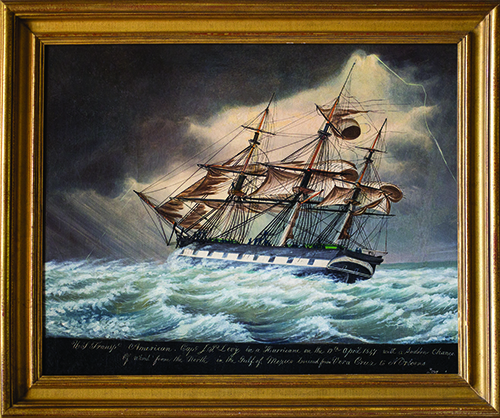
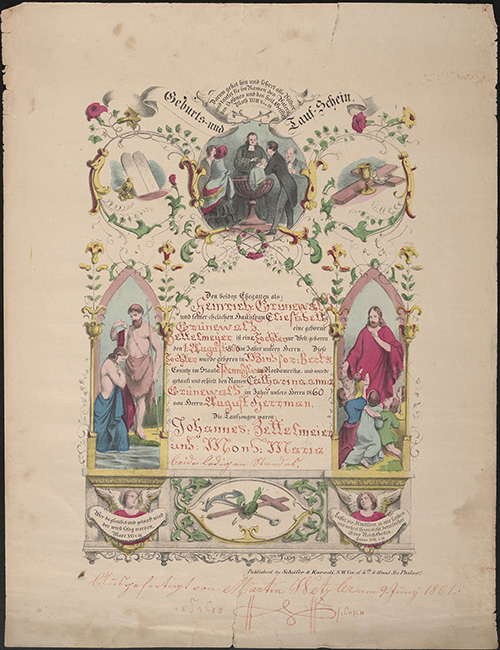

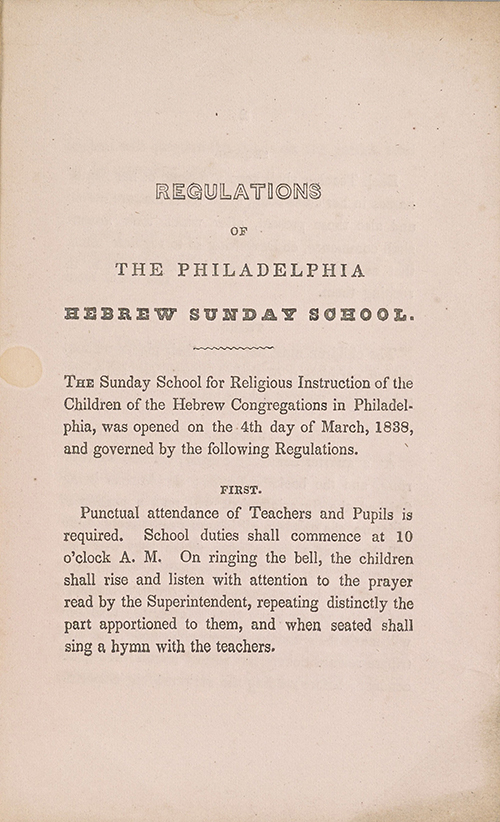
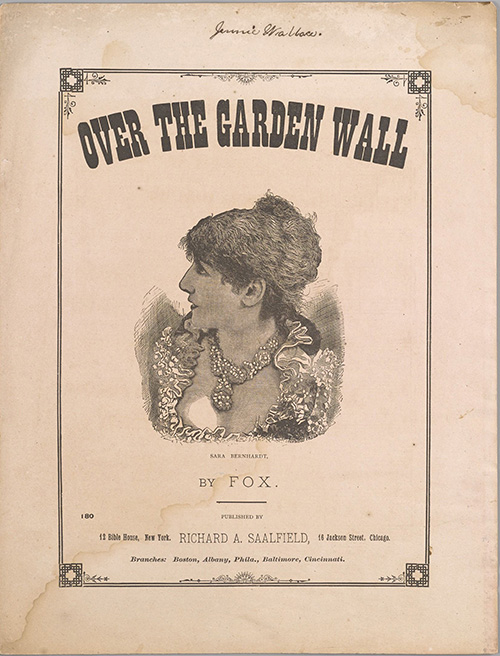
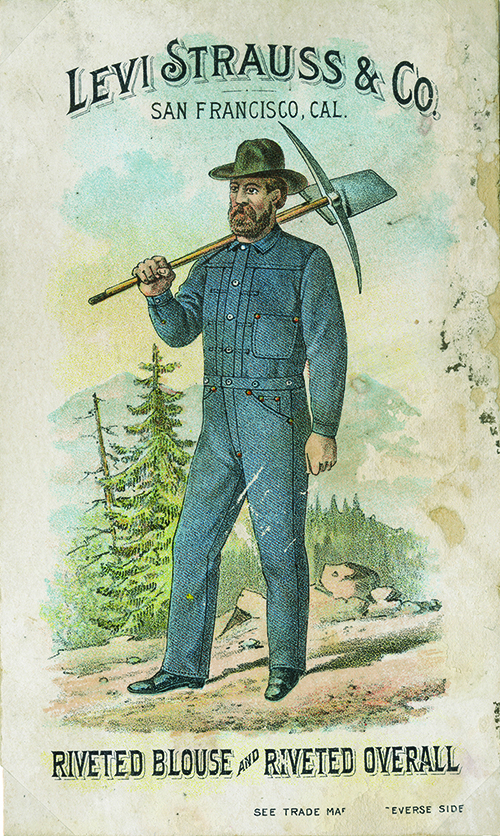
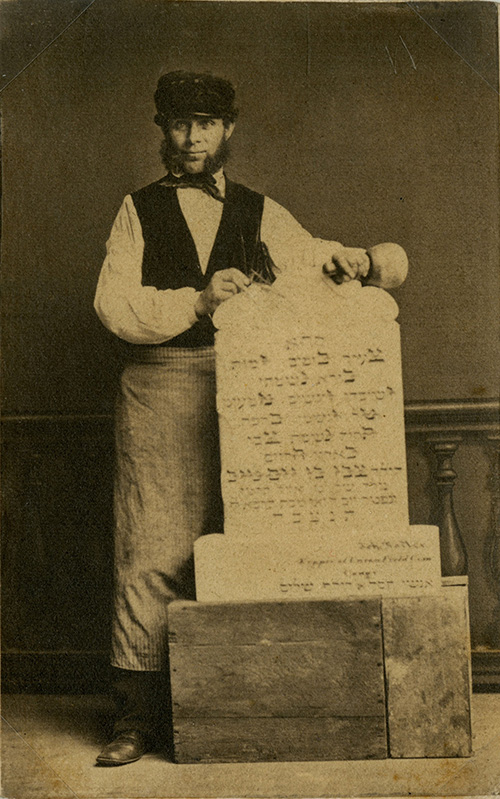
 PHILADANCO: Xmas Philes, an Annenberg Center original commission, returns to its roots December 12-14 in Zellerbach Theatre.
PHILADANCO: Xmas Philes, an Annenberg Center original commission, returns to its roots December 12-14 in Zellerbach Theatre. 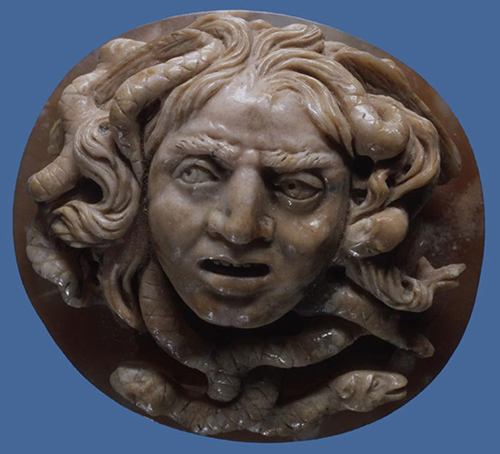 At the Penn Museum on Thursday, December 26 and Friday, December 27, 5:30- 8 p.m., there will be a special event for adults—Night Vision: Monsters, Myths and Legends Tour and Happy Hour.
At the Penn Museum on Thursday, December 26 and Friday, December 27, 5:30- 8 p.m., there will be a special event for adults—Night Vision: Monsters, Myths and Legends Tour and Happy Hour. On Thursday, December 26; Friday, December 27; Saturday, December 28 and Sunday, December 29 visitors of all ages can adventure around the globe with exciting tours from the Penn Museum’s Global Guides and scavenger hunt explorations of the new galleries, along with art-making, games and oral storytelling in the traditional African style.
On Thursday, December 26; Friday, December 27; Saturday, December 28 and Sunday, December 29 visitors of all ages can adventure around the globe with exciting tours from the Penn Museum’s Global Guides and scavenger hunt explorations of the new galleries, along with art-making, games and oral storytelling in the traditional African style.
